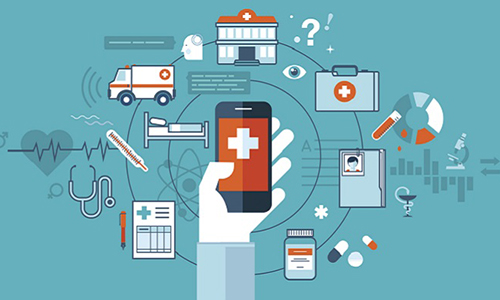Has Health IT Adoption Improved Patient Outcomes?
February 8, 2018
Source: HCANews
 1,355
1,355

It had been a few years since the last systematic literature review of the effect health information technology (HIT) has on patient outcomes, and much has changed since. The Health Information Technology for Economic and Clinical Health (HITECH) Act of 2009 encouraged widespread electronic health record (EHR) adoption, vaulting them to near-ubiquity.
A pair of researchers from Texas State University’s School of Health Administration set out to answer a worthy question: Has HIT like EHRs, decision support, and monitoring programs had a positive impact on medical outcomes since HITECH’s passage? Their review, published recently in the Journal of Medical Internet Research, indicated that it has.
They whittled a pool of over 3,000 relevant studies found on Cumulative Index of Nursing and Allied Health Literature (CINAHL) and PubMed down to a core focus of 37. They molded their criteria to match those of 2 previous reviews, published in 2011 and 2006 respectively.
A dozen categories of technology were identified: web-based interventions like monitoring or chronic condition programs, telemedicine technology, and clinical decision support systems were among the most frequently-appearing.
Over 80% of the studies included showed some form of benefit in 1 of many physical, psychological, or quality-of-life areas. Although often grouped as administrative efficiencies, the researchers chose to count metrics like length of stay and readmission rates as positive patient outcomes, given that they typically indicate improved care.
The other fifth (19%) of studies showed no statistical improvements, but the pair confidently wrote that, “We accept our hypothesis and reject the null. There is a positive association between the adoption of HIT and medical outcomes.” They did, however, note that, “the diversity in types of medical outcomes examined and the uniqueness of each sample studied,” limits generalizability.
The previous studies that the work was based on also showed overwhelmingly positive outcomes from HIT, but the new review diverged in that it did not identify any reports of negative outcomes. A continuing positive trend, they wrote, was an increased emphasis on new patient-focused technologies (like telemedicine and web-based support programs).
Research on the effects of health information exchange (HIE) technology, on the other hand, was found lacking. More studies in the future will be needed to identify what outcomes are associated with its use, the authors wrote.
“Providers who leverage HIT to improve medical outcomes can position themselves for sustainability in the future,” the Texas State duo concluded. “This will be especially true as the industry establishes new and innovative ways to integrate technological advances and works toward greater interoperability,” with Stage 3 of CMS’s meaningful use rules kicking into gear.
Read more on
- Disposable Medical Products that Keep Your Medical Facility Clean and Sterile March 31, 2022
- Things to Know before Buying Newborn Baby Incubators March 31, 2022
- 10 Triumphant Drug Launches Of The Decade August 26, 2021
- World Immunization Week 2019 May 16, 2019
- Ultrasonic Nebulizer Market Views September 6, 2018
your submission has already been received.
OK
Subscribe
Please enter a valid Email address!
Submit
The most relevant industry news & insight will be sent to you every two weeks.



